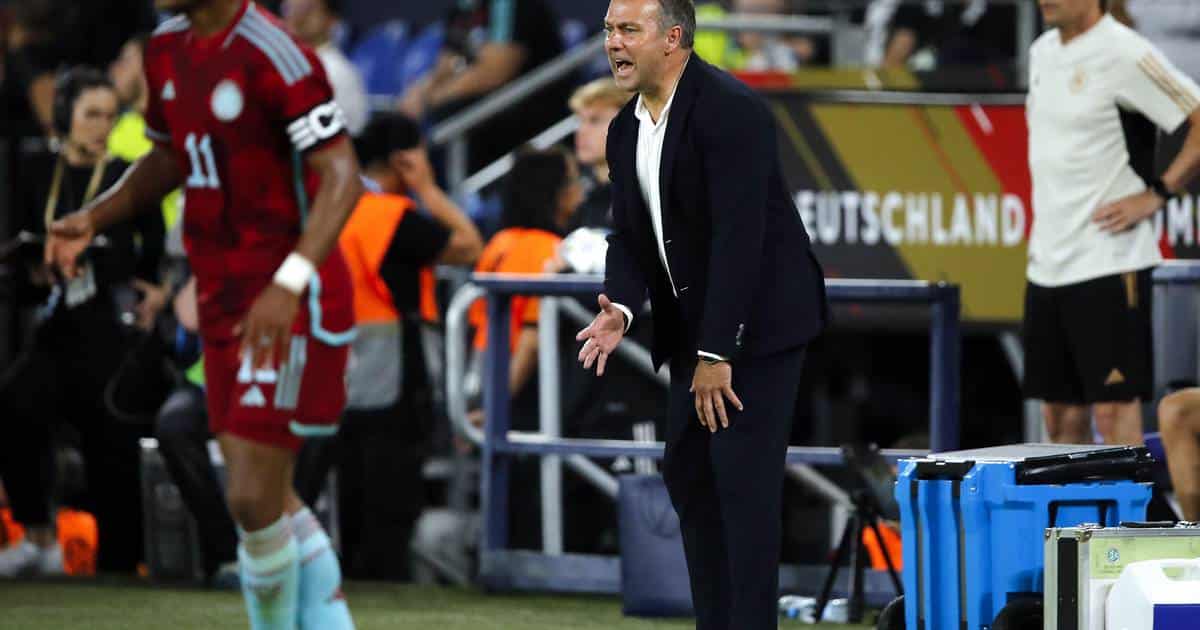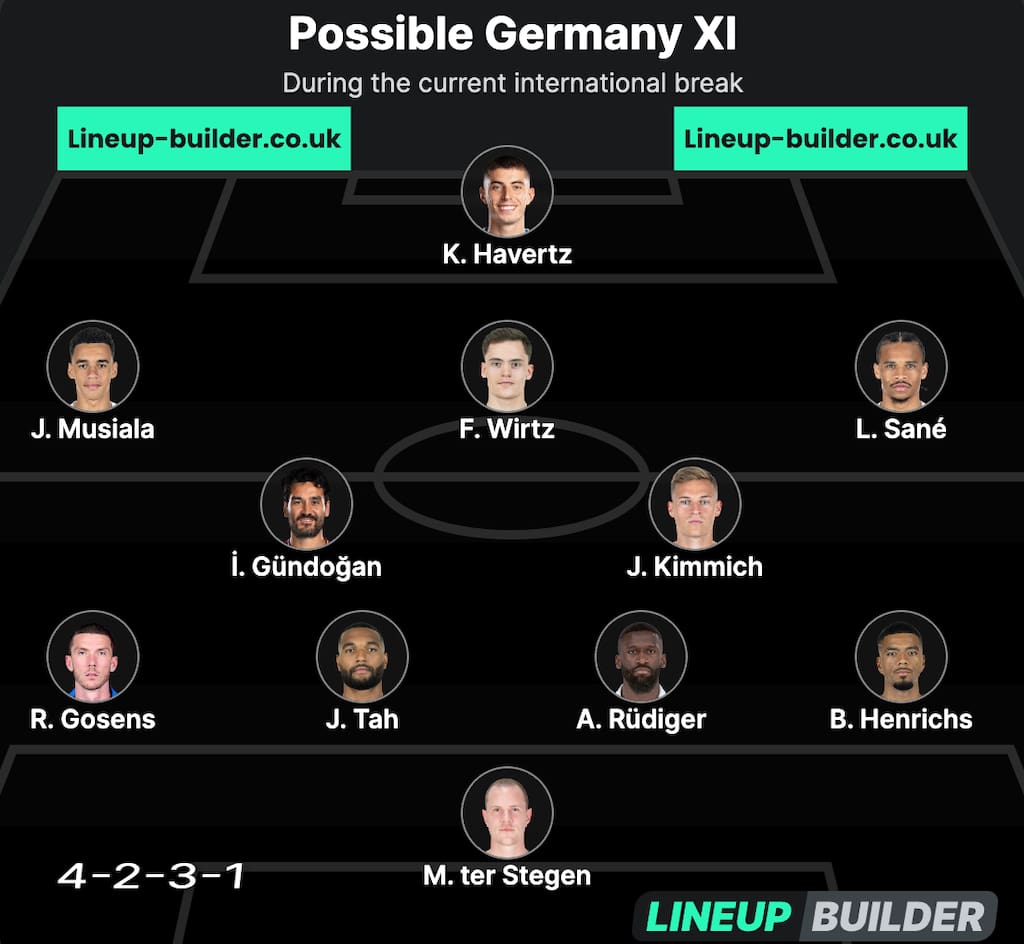European juggernaut Germany remains one of the most influential nations in football’s ongoing proverbial vision board, but even giants need to evolve if they are to survive.
Dis Mannschaft is still languishing in the shadow of a World Cup win in Brazil nearly ten years ago; living on the last remnants of the high point in the reign of Joachim Löw. And it has led to some catastrophic results on the biggest international stages.
In what was the culmination of the German footballing world having been uprooted and its foundations reconfigured in what became known as “Das Reboot,” a once dreary and functional Germany was crafted into a world beater for the fourth time in its history in a manner which, today, is surely necessary once more.
Now under the command of the primary Löw disciple in Hansi Flick, a man who brilliantly led Bayern Munich to seven major honors in just two years at the helm in Bavarian, including being crowned Champions League winners in 2019-20, Germany has fallen well short of the mark under the former Bayern midfielder.
Since his first match in charge back on 2 September 2021, Flick began his reign with a ten-match undefeated run while becoming just the third manager in German history to do so after the late, great, Josef “Sepp” Herberger and Josef Derwall. It all started so brilliantly, but fast-forward to the present, and Flick’s position of power is under considerable threat.
Germany’s upcoming games against Japan and France will be crucial for Hansi Flick’s future. If there’s a repeat of the performances and results of June’s games against Ukraine, Poland and Colombia, a change of coach would be likely. Julian Nagelsmann and Oliver Glasner are… pic.twitter.com/jvRykiWdvh
— Bayern & Germany (@iMiaSanMia) September 5, 2023
All told Flick’s record is a frustrating 12-7-5; boasting just a 50% win rate. In his last eleven matches in charge, Germany has managed just three wins (vs Oman, Costa Rica, and Peru) while suffering five defeats and three draws against a mixed bag of competition, which culminated in Germany’s shock exit during the group stage of the 2022 World Cup in Qatar, mirroring the results of his predecessor four years prior in Russia.
The national team’s form this calendar year hardly inspires confidence either despite the aforementioned win over Peru back in March; one that was quickly followed up with a loss to Belgium three days later, while a trio of friendlies in June against Ukraine, Poland, and Colombia netted just one draw and a pair of losses against the latter two nations where Germany failed to score a single goal.
Unfortunately for Flick, there is perhaps no better time for the DFB to oust him from power given the availability of both Julian Nagelsmann and Oliver Glasner, with reports from Sport Bild suggesting that one could very well be approached if performances and results from three months prior are mirrored.
But what is so frustrating for many fans and experts alike is the reality that Germany, for all their poor performances in the last year, the talent pool on offer is chock-full of elite-level talents that are far more capable than what they have had the ability to show of late.
So much of the frustration surrounding Germany has been a simple one; logical solutions to improve on-pitch performance were never tapped into, and if they were, it happened too late.
A prime example came by way of how Flick deployed the team in Qatar, in a shape and tactical schematic that was crying out for a true center-forward (something Germany has lacked, really, since the days of Miroslav Klose) while Flick refused to put faith in Niclas Füllkrug as nothing more than an option off the bench. Ironically enough, whenever the former SV Werder Bremen man was introduced, Germany immediately improved.
Furthermore, continued reliance on former favorites of the Löw regime persisted, despite the wealth of imbalance that it imposed on the team, while Flick came under scrutiny from some sections who made the distinction that national selection was not performance-based.
Union Berlin’s managing director Oliver Ruhnert has once again criticised Germany coach Hansi Flick.
Ruhnert said in July, the personnel selection in the German national team is not performance based. pic.twitter.com/3x1hu95gFc
— DW Sports (@dw_sports) August 14, 2023
When it comes to national service, deploying players where they’re best, and melding together a collective squad in a way that achieves maximum results, so often in a way that does not require invention or overthinking, is usually the best policy. This was on display when Morocco made a magical run to the semi-finals with a team that, for talent level, was far below many of its opponents, but was collectively structured by Walid Regragui to reach peak performance across tournament play.
On paper, the current squad is more than good enough to put Japan to the sword and, at the very least, give perennial favorite France a run for its money. The core of the squad still boasts elite-level talent the likes of Joshua Kimmich, İlkay Gündoğan, Jamal Musiala, Leroy Sané, Antonio Rüdiger, Julian Brandt, Kai Havertz, Florian Wirtz, Serge Gnabry, and Thomas Müller.
Additionally, some new faces (Brighton’s Pascal Groß) mixed with budding young profiles such as Malick Thiaw, Kevin Schade, and Felix Nmecha, once again have shown that the production line continues to churn out quality that performs in Europe’s top leagues.
There are some, myself included, that have already harbored the opinion that Flick should have been removed from power previously, allowing his replacement ample time to bed in his ideals on what is indeed a talented group of players
Should the ax finally fall and the Heidelberg-born manager be stripped of his position as head trainer within the coming weeks if Germany continues to fall well short of the mark, there may still be time to rejuvenate the side nine months before hosting the Euros. What matters now, is just how decisive the DFB intends to be.












